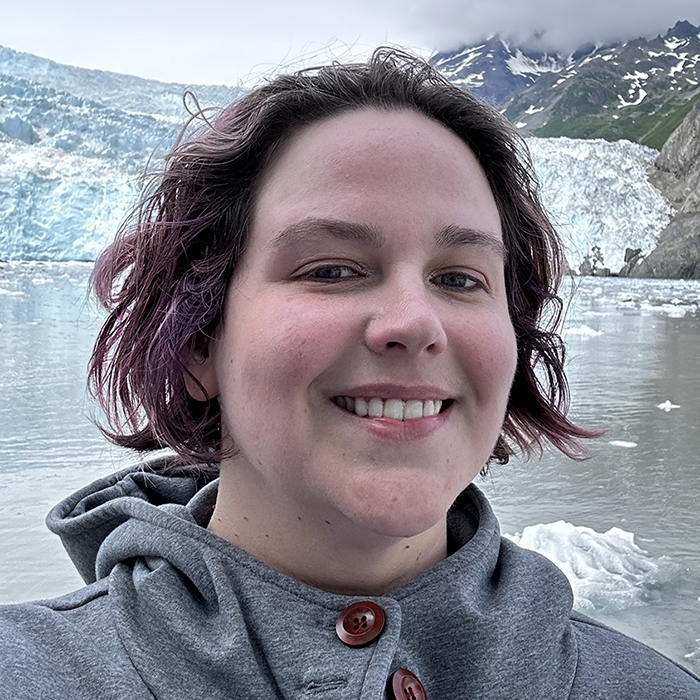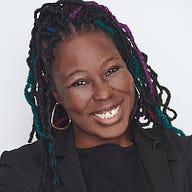A theme park that immerses fans in the world of a favorite movie.
A board game or video game adapted from an existing story world.
A fictional character’s favorite T-shirt made in real life for fans to purchase.
Although the term “transmedia storytelling” may be unfamiliar to some, the concept is nothing new. Transmedia narratives use multiple mediums to tell a more complete story. Unlike adaptations, which retell an existing story in a new medium, transmedia allows for creatives to explore new areas of an existing world, expanding upon the setting or fleshing out characters beyond what’s already on the page.
For independent authors, the practice can offer more than just creative storytelling opportunities.
“In a world where everyone is hungry for more (and more, and more) content, employing a transmedia strategy allows you to expand your IP into multiple income streams that have the potential to reach different audiences—plus it’s simply fun to take such an expansive approach to your fictional worlds and stories,” writes author Ember Casey.
Two different ideas exist for how to approach transmedia, called “East Coast,” which deepens existing stories, and “West Coast,” which broadens the world beyond what readers might encounter in one medium. Both can be effective for connecting a wider array of readers with your projects and turning your current readers into superfans, according to Kristine Kathryn Rusch.
“As writers, we create more than products,” Rusch wrote in a July 2023 blog post on kriswrites.com. “We create stories that people get lost in, stories that mean so much more to people than we the authors do. That’s something important to remember.”
Of course, transmedia storytelling can benefit authors from a business perspective too. Although many authors, including Casey, agree it likely won’t be required for an author to find success in the future, the concept offers another avenue for marketing your work and fostering brand recognition—both of which can pay dividends.
“There are many paths for indie authors these days—which means I don’t believe that any one strategy is required for success—but I do believe that authors who stop defining themselves as ‘writers’ and start seeing themselves as ‘storytellers’ will see their opportunities (and creative projects) expand,” Casey writes. “And those who expand their IP across different forms of media will find their businesses more resilient to industry fluctuations in the long run.”
Do what you do, and do it well. End of story. All the extras can be fun and attention-grabbing, but at the end of the day, the most important thing is to write the books you love. Readers will see that passion and join in. If you want to add in merch and audio and stage plays and interpretive dances (I kid!), do it wholeheartedly and the most enthusiastic readers will follow you there. If you’d rather just focus on the books, then do that. There are literally no musts or shoulds in the business, but there’s an awful lot of flexibility for those who like doing backflips and cartwheels all the way to the bank.

Melissa Storm
Authors can lean into what we do best and create great stories and use our imaginations. But those stories now can be used and converted to these different media formats, in fascinating ways. And I also think there's a huge role now for people to collaborate with other creatives. … In this sort of West Coast vs. East Coast mindset, I think there's one opportunity we talk quite frequently about this industry going deeper with the superfans, providing them more interesting things. But at the same time, readers love to read, and I don't see a world where people stop reading fiction and wanting prose, wanting the audio. Not everything needs to be a movie, which is why I think the transmedia opportunity of anything presents an opportunity where you might not be able to get your book adapted to an official Hollywood movie or this or that, but you can create a version of your intellectual property as sort of offspring of what you're doing in the form of a comic book, in the form of a YouTube video that can attract more fans to your overall brand and stories and characters.

Michael Evans
I feel like a lot of indie authors are already doing this—obviously expanding in both the East Coast and the West Coast way. I think that the East Coast way is much more common, where you provide additional content for people to dive into … to provide more information. But I really do feel like the best, the really big advantage of the West Coast version of transmedia … is that you get a bigger return because your superfans will go and consume all these mediums. And honestly, most of these additional mediums are not freebies. They have some sort of revenue stream built into them. And on top of that, each of these different transmedia mediums that you go wide with the West Coast versions, you can go deep, so you can have divergent or nested storylines in content across these other mediums that you would normally be able to get in the same volume as you could if you went just deep and not wide first.

Malorie Cooper
Many authors won't need more to survive, but more will allow them to leverage, to gain new audiences, to pretty much just establish themselves a bit more. Again, it's not having your eggs in one basket. It's just exploring all of the options available to you and whichever one can you can cross over to offer more to your audience because it's all going to be brand loyalty and brand recognition that will allow more growth as all marketing and social media platforms get more competitive.

Pierre Jeanty
Storytellers, regardless of medium, will rule the world.

S. J. Pajonas
I feel like, a lot of times, people see books as some mystical thing that's unique and doesn't get produced in the same way other properties do, and it always kind of blows my mind. And I think it's very smart to be looking at other industries and the ways they're evolving and connecting with their audiences.

Brandon Sanderson
My books are on a serialized website. My books have been turned into webcomics. You know, some people are doing television, some people are doing audio plays and podcasts. So wide to me means, "What new opportunity can I use to get my story out there?" And that's what I think authors need to think about. "How many different ways can I get my story out there?"

Ines Johnson
I'm excited about transmedia. Will indie authors ever need to be more than just writers to survive in this industry? I don't think so. There are plenty of seven-figure writers who do it with books alone, but transmedia will help you get to seven figures and if you do it right, you can absolutely thrive in ways that might feed you outside of books. If you want to produce other kinds of works and see your books as other kinds of things, that would absolutely help your business, and it will obviously mean that you make more money if you do transmedia in a way that increases your profit margins and gets more people interested in the books.

Theodora Taylor
I've seen fantasy authors ... create entire card games for their story world and everything like that. So anything that gets people interacting with the story world in between book releases I think is a really great way to keep your story world alive. And I also think that indie authors are going to need to do that in order to survive in the industry because, as we all know, it's tougher and tougher these days to just write a book, release it, and hope that that's going to make enough money. The algorithms are tougher than ever. And there's just more competition. When I started off in indie writing, we had less than a million books in the store. Now there's many more—there's over a million published every single year. And so I think that transmedia serves your readership by giving them great quality content to interact with your story world. And then that also works as a marketing endeavor because it produces a bunch of different channels for people to come to know you and your product line.

Elizabeth Ann West
As new tools make it easier for us to do transmedia, it's going to become increasingly important for us to look into that sort of thing. It's not like it's going to be essential—I don't think there's really very much that's essential for a writer to do except write stories. But I think there will certainly be a lot of opportunities for doing things like making our own movies, making our own soundtracks. … Boy, there are so many different opportunities out there for us to explore. And as the technology makes this stuff more and more accessible, it's just going to explode, I think.

Kevin McLaughlin
Indie authors already have to be more than just writers.

Steve Pieper
I think the definition of wide is all-encompassing, honestly … but that it's also easy to miss the breadth of possibilities out there. A lot of authors take wide to mean “on all the retailer platforms.” I'm seeing an increasing move in the publishing world toward cracking open the next level, which includes direct sales and storefronts, using platforms like Kickstarter, and also starting to think about your IP as more than just e-books or plain print editions. Serialization, gamification, audio, fancy illustrated special editions, StoryBundles, subscriber book boxes, multimedia, graphic novels, screenplays—the possibilities are out there and expanding as new technologies hit the publishing world.

Anthea Sharp
And if you're an indie author, you are an indie publisher, meaning you've taken all the responsibilities of that publisher on top of the writing itself. So, of course, there's way more already to surviving successfully as a writer. Transmedia is just the opportunity for writers to license their work well beyond the book. The book is yet one aspect of the IP that comes from a writer's imagination. I've already licensed books to publishers, the same content in a different manner outside of the contract with the publisher to other forms of media and apps. I've already leveraged tools like this, and I know I'm going to continue to, and other writers out there are going to continue to find ways to exploit their IP.

Mark Leslie Lefebvre
Previous Next

